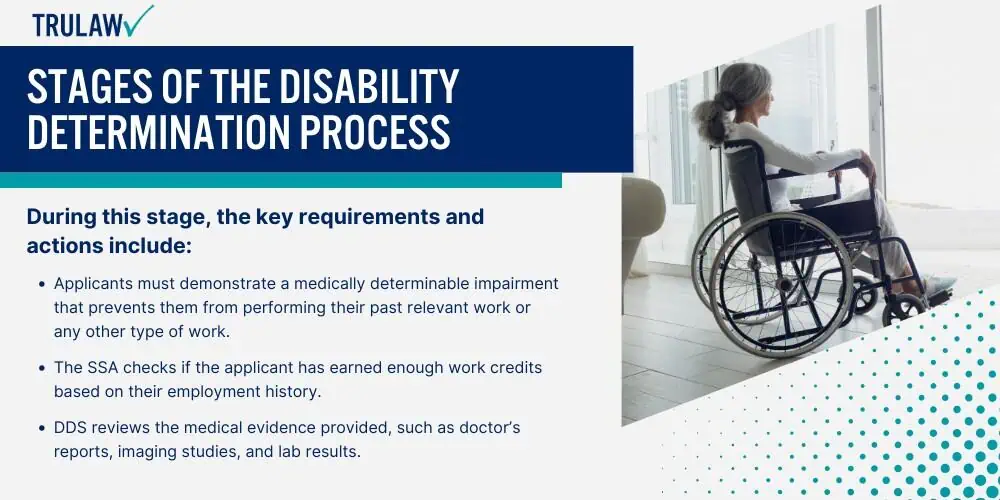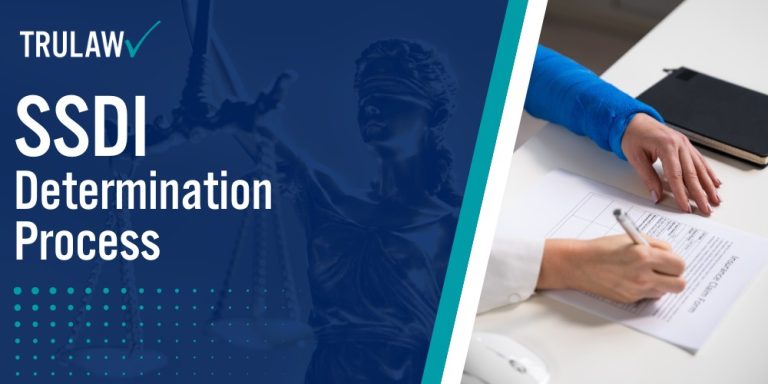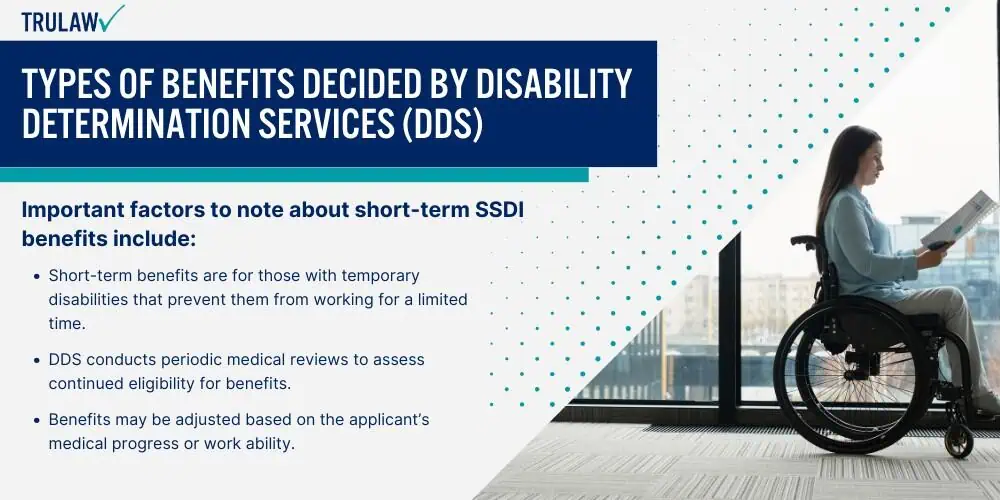Familiarizing yourself with the different stages of the SSDI determination process is important, as each phase requires specific information and has particular timelines.
Below is a breakdown of each stage and what applicants should expect.

Initial Application Review
The SSDI application process begins when you submit your application to the Social Security Administration (SSA), either online, by phone, or at a local field office.
This stage involves collecting personal details, work history, and medical records.
The primary purpose of the initial review is to determine if the applicant meets the basic SSDI criteria.
During this stage, the key requirements and actions include:
- Applicants must demonstrate a medically determinable impairment that prevents them from performing their past relevant work or any other type of work.
- The SSA checks if the applicant has earned enough work credits based on their employment history.
- DDS reviews the medical evidence provided, such as doctor’s reports, imaging studies, and lab results.
- If the medical evidence is insufficient, DDS may request additional records or send the applicant for a consultative examination.
Many applications are denied at this stage, but denials can be appealed, which brings applicants to the reconsideration phase.
Reconsideration Phase
If the initial SSDI application is denied, applicants have the right to request reconsideration.
This phase entails a thorough review of the application by a different examiner at DDS.
The reconsideration focuses on whether the initial decision was correct and whether any new information affects the outcome.
Key steps involved during the reconsideration phase include:
- Applicants can submit updated medical records or additional information during this phase.
- A new application is not required for reconsideration; the original case is reopened for further review.
- DDS may consult with additional medical experts to ensure all relevant evidence has been reviewed.
Like the initial review, the reconsideration phase frequently results in denials.
If denied again, applicants can request a hearing with an administrative law judge (ALJ).
Hearing with an Administrative Law Judge (ALJ)
The ALJ hearing is a key step in the SSDI determination process.
During this phase, an independent judge reviews the case and listens to testimony from the applicant and, in some instances, medical or vocational experts.
The hearing provides applicants with an opportunity to explain their limitations and present any new evidence that may support their claim.
At this stage, some important considerations are:
- Applicants may have legal representation during the ALJ hearing.
- The judge evaluates whether the applicant’s impairments meet the SSA’s criteria for a medically determinable impairment and whether those impairments prevent them from engaging in substantial gainful activity.
- In many cases, the ALJ may consult a medical or psychological consultant to clarify the severity of the applicant’s condition.
- Applicants can present new documentation, including updated medical records and reports from treating physicians.
While many applicants are approved at the ALJ stage, decisions can take several months.
If denied, applicants can still pursue further review through the Appeals Council.
Appeals Council and Federal Court Review
If the ALJ denies an SSDI claim, the applicant may request a review by the Social Security Appeals Council.
The Council examines whether the ALJ followed proper procedures and correctly applied the law.
While the Appeals Council may uphold or reverse the ALJ’s decision, it can also remand the case for another hearing.
Key aspects of the Appeals Council and Federal Court Review process include:
- The Appeals Council does not conduct a new hearing but instead reviews the case file and the ALJ’s decision.
- If the Appeals Council upholds the denial, applicants can take their case to federal court.
- Appeals to federal court focus on errors in applying the law, rather than disputing the facts of the case.
Although the federal court process can take significant time, it represents an important final opportunity for those seeking a favorable outcome.
Throughout this process, legal support can help applicants navigate the SSDI system and ensure that their claims are well-prepared.




